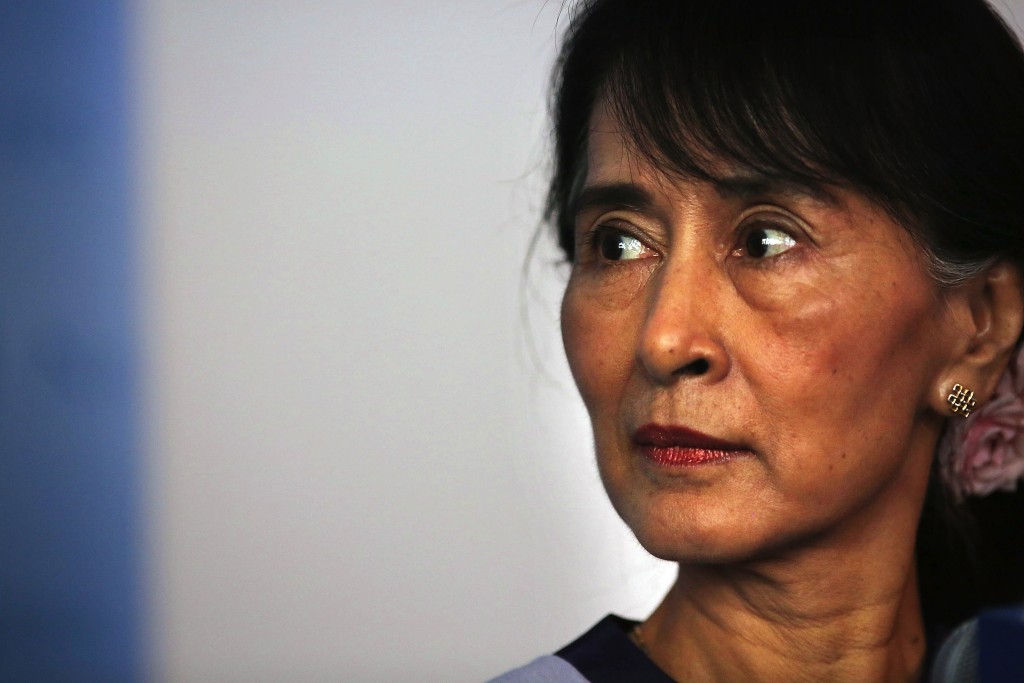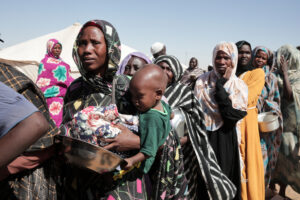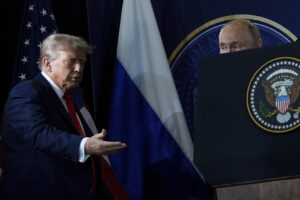Aung San Suu Kyi Won’t Speak Up for This Human Rights Abuse

Burmese opposition leader Aung San Suu Kyi speaks to the media following a meeting with United Nations Secretary-General Ban Ki-Moon at the U.N. on September 21, 2012 in New York City. Photograph by Spencer Platt | Getty Images.

She is the consummate activist for democracy and freedom, but she remains silent on a major human rights violation against the Rohingya minority in Myanmar. Aung San Suu Kyi won the Nobel Peace Prize in 1991 for her non-violent struggle for democracy and human rights. But she hasn’t made her position clear on the almost one million stateless Muslims and the violence they face every day.
The debate over national identity in Myanmar seems more urgent than ever, as the country is confronting other ethnic clashes in the north. The country’s democracy is young and still has many challenges to overcome: continuing to ignore integration of minorities could prove to be a fatal mistake.
Suu Kyi is the internationally beloved leader of the opposition in Myanmar. After 15 years under house arrest, she announced in 2013 that she would be running in the next presidential elections, set to take place in November 2015. Although the current constitution bans her from running—candidates must not have foreign relatives, and Ms. Suu Kyi’s husband and sons are British—she hopes the law will be amended in time; she continues to campaign and speak up for democratic reforms.
She is not afraid to declare that Myanmar is not a real democracy. She criticized the West’s enthusiasm and “blindness” in the country’s development, most recently in an interview with the Financial Times on Feb. 14. Indeed, after the 2010 elections and an expected GDP growth of 8.5 percent in 2015, Burma has had one of the fastest democratic transitions and has become a hallmark of progress and hope in South East Asia.
Suu Kyi acknowledges much has changed since Myanmar’s transition to democracy in 2010—starting with her own story, from house arrest to a member of the Burmese House of Representatives in 2012 and potential presidential candidate. But she still talks about the threats to the country’s political and economical development; she voices strong opinions against the current state of affairs and calls for the importance of rule of law.
But when she is asked about the status of minorities, her democratic spirit abates. “We’ve always held to the norms of human rights as written down by the U.N. declaration of human rights,” Suu Kyi told the Financial Times. “We have always tried to do everything possible to promote harmony between the two communities, rather than to widen the gap.”
Counter to this narrative of coexistence, Rohingya Muslims are not recognized citizens of Burma. In 2012 Buddhist monks in the state of Rakhine started rallying against them, and now over 240,000 of them live displaced in quasi-concentration camps, without access to basic health care or education.
Connecting the image of Buddhist monks with violence seems paradoxical for a Westerner. Maybe that’s why the West has ignored the issue for so long. Nonetheless, the Rohingya, who are ethnic Bengalis, have been historically discriminated against. Under the 1982 Citizenship Law, which effectively divided the country into different levels of citizenry, this minority group has been denied citizenship. In June 2012, clashes between Buddhist monks and Muslims in the Rakhine state ended with the death of 200 Rohignya and over 100,000 displaced.
The international community’s response has been slow and often blurred by enthusiasm for democratic reforms and fast economic growth in the country. In April 2013, Human Rights Watch published a report urging the government to end ethnic cleansing. But not much has changed. Myanmar’s President Sein Thein spoke of reforms and giving some second-class citizenship to Rohingya late in 2014. The United Nations called for an end to violence and provision of full citizenship to the minority. But in February 2015 the government revoked the Muslim minority’s voting rights.
Suu Kyi is no longer just an activist: she is a political animal. Perhaps she is waiting to win public office before she speaks up for minority rights. But her cynicism is blatant, and it could harm the credibility she fought so hard to win. She knows that her chances to win the presidency are weak. Even if there is a constitutional reform allowing her to run, she will still need the support of a Burmese majority. And the Rohingya Muslims are a minority that will not even be allowed to vote.
The Nobel laureate’s cold political calculation makes sense. But if she truly wants to achieve her promise of a more democratic Myanmar, and to live up to her honors, she will need to speak out more forcefully to create a more inclusive and plural country.
Mireia is the Editor-in-Chief at JPI. She’s a Fulbright scholar pursuing an M.A. in International Relations and Journalism at New York University.





I believe Mireia Triguero Roura’s article is effective but not truthful. On the one hand she speaks in a pragmatic fashion and then just as quickly denigrates Aung San Suu Kyi for not speaking out for the Rohingya Muslims. Ms. Triguero Roura needs to determine if she wants Aung San Suu Kyi elected or not. If she doesn’t want her elected then the potential candidate should speak out forcefully now for the minority and be damned with winning. Only if San Suu Kyi is able to get the “mock” constitution changed and able to run and if elected and then does not speak out and use her presidency for the good of the minority should Ms. Triguero Roura speak legitimately against San Suu Kyi. One must really be realistic to politics please!
I loved this post! I read your blog fairly often and your
always coming out with some great stuff.. I shared this on my FaceBook and my followers loved it, keep up the
great work ! 🙂